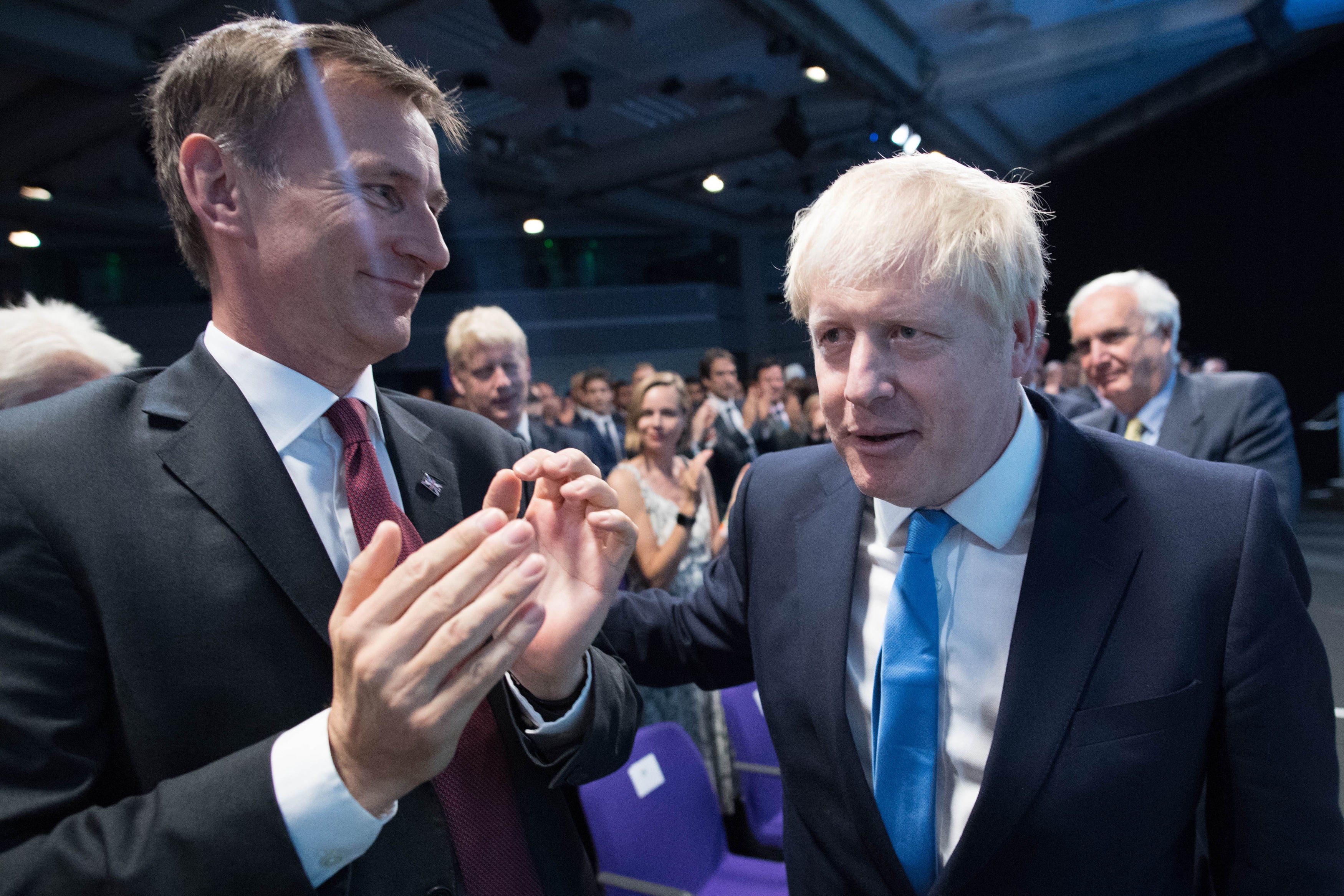In the Hunt: why there is a surprise contender for next Tory leader
Conservative confidence in Boris Johnson’s leadership is waning – and former health secretary Jeremy Hunt could be the surprise antidote, writes Sean O’Grady


Could Jeremy Hunt be prime minister by this time next year – if not sooner?
It’s not implausible. Such is the modern Tory party’s addiction to faction and plotting, it is an open secret that a substantial number of Tory MPs, from various sides and places, are thinking about the succession to Boris Johnson, and with some urgency. To put things at their simplest, Johnson doesn’t inspire much love or personal loyalty, and these days he seems not even to be commanding respect. He was useful to the party as an election winner and the man who could “get Brexit done”. He has now outlived his usefulness. Apart from Nadine Dorries, and possibly Priti Patel, there are few even at the top of the party ready to form a praetorian guard around the prime minister. Thoughts are indeed turning to the next leadership succession. The two main contenders from within the cabinet are obviously Rishi Sunak and Liz Truss, both grassroots darlings, but Hunt has not been forgotten. His day may yet come.
Since he lost the leadership to Boris Johnson in 2019, he has played a smart game. He’s been basically loyal to the government, but critical and defiant when he felt it necessary. The recent rebellion on the social care cap is an excellent example. Hunt advised his fellow MPs not to vote against the “stingy” package, because it could be altered by a future government (without actually saying a Hunt-led government). Theresa May and many others followed the same route, and ensured the new social care cap was carried by only a narrow majority, leaving it open to fresh rebellion from the Lords or a Johnson U-turn. His latest idea is a sensible proposal to introduce a structured personnel and training plan for the NHS. He has also adopted the case of Nazanin Zaghari-Ratcliffe and other effective hostages in Iran.
The former health secretary has also kept his profile up and burnished his reputation during Covid. He has been pursuing a sort of constructive internal opposition on key aspects of the pandemic response, not least from his base as chair of the Health and Social Care Committee. No matter that some of the shortcomings in the early days, such as on protective equipment, may have had their origins during his long stint at health (2012 to 2018), he has made measured and fact-based interventions drawing on his own experience.
If the Conservatives are searching for an antidote to the Johnson craziness, then almost anyone would do, but Hunt is probably the most effective balm for their nerves. He oozes competence to the point of Starmeresque dullness. Where Johnson is careless, lazy and personally wayward, Hunt is considerate, committed and uxorious. Where Johnson disdains business and business people, Hunt is one of them, building up an online listings company, Hotcourses, creating 200 jobs and selling it on for £14.5m in 2017, making him the then richest member of the cabinet. He was a Remainer, but perhaps that is less relevant nowadays, when what is really needed is to make Brexit work and stabilise issues such as fishing, finance and Northern Ireland.
Hunt has high-level experience, at culture, health and the Foreign Office (where he would happily have served under Boris Johnson had Johnson not wanted it for Dominic Raab. Johnson offered him defence, which he turned down). He also has a political base left over from the 2019 campaign, although some of the 50 MPs who backed him have since left the Commons and his backing was overwhelmingly southern, from places like his own seat of South West Surrey. Albeit manipulated by Johnson, and Johnson’s campaign manager Gavin Williamson, Hunt managed to garner a respectable 77 votes from MPs in the final round, just ahead of Michael Gove (75) but well behind Johnson (160). He recorded a similar level of support to Johnson’s 92,153 (66.4 per cent).
In a leadership election, much would depend on which of the three – Sunak, Truss, Hunt – had to drop out at the MPs stage, as only the top two then go forward to be voted on by the membership (unless the rules get changed). It’s not obvious that any of the three has any sort of solid parliamentary fan club, though Sunak has been an energetic publicity seeker and image builder; their appeal will probably depend on who’s perceived to be the most likely winner. Momentum will count more than policy, where Truss is likely to emerge as the most confrontational with the EU (not as winning a pitch as it might been, though, given war-weariness).
According to the regular survey by Conservative Home, Truss (former Remainer) is the runaway favourite with an approval rating of 82.8 per cent, higher than anyone else, and ahead of Sunak (Vote Leaver) on 63.3 per cent (post Budget and tax hikes). Hunt, outside the cabinet, isn’t polled on, and hasn’t the high visibility of the other two, but he’s got the advantage of being a clean pair of hands and a more obviously fresh start – should that be desired. If Johnson was a sharp reaction to May, and John Major a reaction to Margaret Thatcher, to offer a couple of precedents, then Hunt would stand in stark well-groomed contrast to Johnson. He would then stand a good chance of finally achieving his ambition, rebuilding the Tory reputation for competence, and re-establishing a conventional model of governance. There’d be fewer jokes, though.



Join our commenting forum
Join thought-provoking conversations, follow other Independent readers and see their replies
Comments